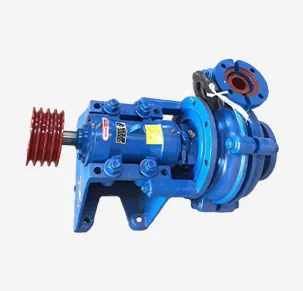Swedish
- Afrikaans
- Albanian
- Amharic
- Arabic
- Armenian
- Azerbaijani
- Basque
- Belarusian
- Bengali
- Bosnian
- Bulgarian
- Catalan
- Cebuano
- Corsican
- Croatian
- Czech
- Danish
- Dutch
- English
- Esperanto
- Estonian
- Finnish
- French
- Frisian
- Galician
- Georgian
- German
- Greek
- Gujarati
- Haitian Creole
- hausa
- hawaiian
- Hebrew
- Hindi
- Miao
- Hungarian
- Icelandic
- igbo
- Indonesian
- irish
- Italian
- Japanese
- Javanese
- Kannada
- kazakh
- Khmer
- Rwandese
- Korean
- Kurdish
- Kyrgyz
- Lao
- Latin
- Latvian
- Lithuanian
- Luxembourgish
- Macedonian
- Malgashi
- Malay
- Malayalam
- Maltese
- Maori
- Marathi
- Mongolian
- Myanmar
- Nepali
- Norwegian
- Norwegian
- Occitan
- Pashto
- Persian
- Polish
- Portuguese
- Punjabi
- Romanian
- Russian
- Samoan
- Scottish Gaelic
- Serbian
- Sesotho
- Shona
- Sindhi
- Sinhala
- Slovak
- Slovenian
- Somali
- Spanish
- Sundanese
- Swahili
- Swedish
- Tagalog
- Tajik
- Tamil
- Tatar
- Telugu
- Thai
- Turkish
- Turkmen
- Ukrainian
- Urdu
- Uighur
- Uzbek
- Vietnamese
- Welsh
- Bantu
- Yiddish
- Yoruba
- Zulu
Telephone: +86 13120555503
Email: frank@cypump.com
jul . 31, 2024 23:31 Back to list
Durable Slurry Pumps Designed for Heavy-Duty Applications to Enhance Industrial Efficiency and Reliability
Heavy Duty Slurry Pumps Essential Equipment for Challenging Environments
Heavy-duty slurry pumps are specialized machinery designed to transport abrasive and viscous materials, commonly found in industries such as mining, construction, and wastewater treatment. These pumps are engineered to handle mixtures of solid particles suspended in liquid, known as slurries, which can be particularly challenging to manage due to their abrasive nature and varying flow characteristics. Understanding the significance of heavy-duty slurry pumps and their operational mechanisms is crucial for ensuring efficiency and longevity in demanding applications.
Key Features and Design Considerations
The design of heavy-duty slurry pumps incorporates several critical features to enhance their performance in harsh environments. Typically, these pumps are constructed from high-chrome alloys or rubber-lined materials to resist wear and corrosion, extending their operational life even when working with abrasive materials such as sand, gravel, and various mineral ores. The impeller and casing designs are also optimized to provide efficient hydraulic performance while minimizing friction loss, ensuring that the pump can maintain a high flow rate under challenging conditions.
Another vital aspect of heavy-duty slurry pumps is their ability to manage high solid concentrations. Unlike regular pumps, which may struggle with slurries, these heavy-duty versions can effectively handle slurries with substantial solid content, often exceeding 70% by weight. This capability is achieved through larger diameters of the suction and discharge piping, as well as specially designed impellers that create the necessary energy to lift heavy slurries through various elevations.
Applications of Heavy Duty Slurry Pumps
heavy duty slurry pumps

Heavy-duty slurry pumps are employed across multiple industries, each with unique requirements. In the mining sector, these pumps are indispensable for transporting mineral slurries from extraction sites to processing plants. The ability to move thick mixtures efficiently can significantly minimize operational costs and enhance productivity. Similarly, in the construction industry, slurry pumps play a crucial role in managing the removal of mud, concrete, and other debris during excavation and piling operations.
Wastewater treatment facilities also rely heavily on these robust pumps. Here, they are used to transport sludge and other solid waste products for processing. The reliable performance of heavy-duty slurry pumps ensures that the treatment process remains uninterrupted, contributing to efficient waste management practices.
Maintenance and Operational Best Practices
Maintaining heavy-duty slurry pumps is essential for ensuring their reliability and longevity. Regular inspection and maintenance schedules should be established to monitor wear components, such as impellers and liners. Operators should be trained to identify early signs of wear or malfunction, which can help avoid costly downtime and repairs.
Another best practice involves monitoring the operational parameters of the pump, including flow rates and pressures. Utilizing advanced monitoring systems equipped with sensors can provide real-time data, allowing operators to make informed decisions regarding performance optimization and maintenance needs.
In conclusion, heavy-duty slurry pumps are vital equipment in various industries where the transportation of abrasive slurries is required. Their robust design, ability to handle high solid concentrations, and applications in challenging environments make them indispensable for efficient operations. By investing in quality slurry pumps and adhering to maintenance best practices, industries can ensure reliable performance, minimize downtime, and maximize productivity in their slurry handling processes.
-
ISG Series Vertical Pipeline Pump - Chi Yuan Pumps Co., LTD.|High Efficiency, Energy Saving, Low Noise
NewsJul.30,2025
-
ISG Series Vertical Pipeline Pump- Chi Yuan Pumps|High Efficiency&Low Noise
NewsJul.30,2025
-
ISG Series Vertical Pipeline Pump-Chi Yuan Pumps Co., LTD.|High Efficiency&Energy Conservation
NewsJul.30,2025
-
ISG Series Vertical Pipeline Pump - Chi Yuan Pumps Co., LTD.|Advanced Hydraulic Design&Energy-Efficient Solutions
NewsJul.30,2025
-
ISG Series Vertical Pipeline Pump - Chi Yuan Pumps Co., LTD.
NewsJul.30,2025
-
ISG Series Vertical Pipeline Pump - Chi Yuan Pumps Co., LTD.|energy-efficient fluid handling&industrial durability
NewsJul.30,2025










